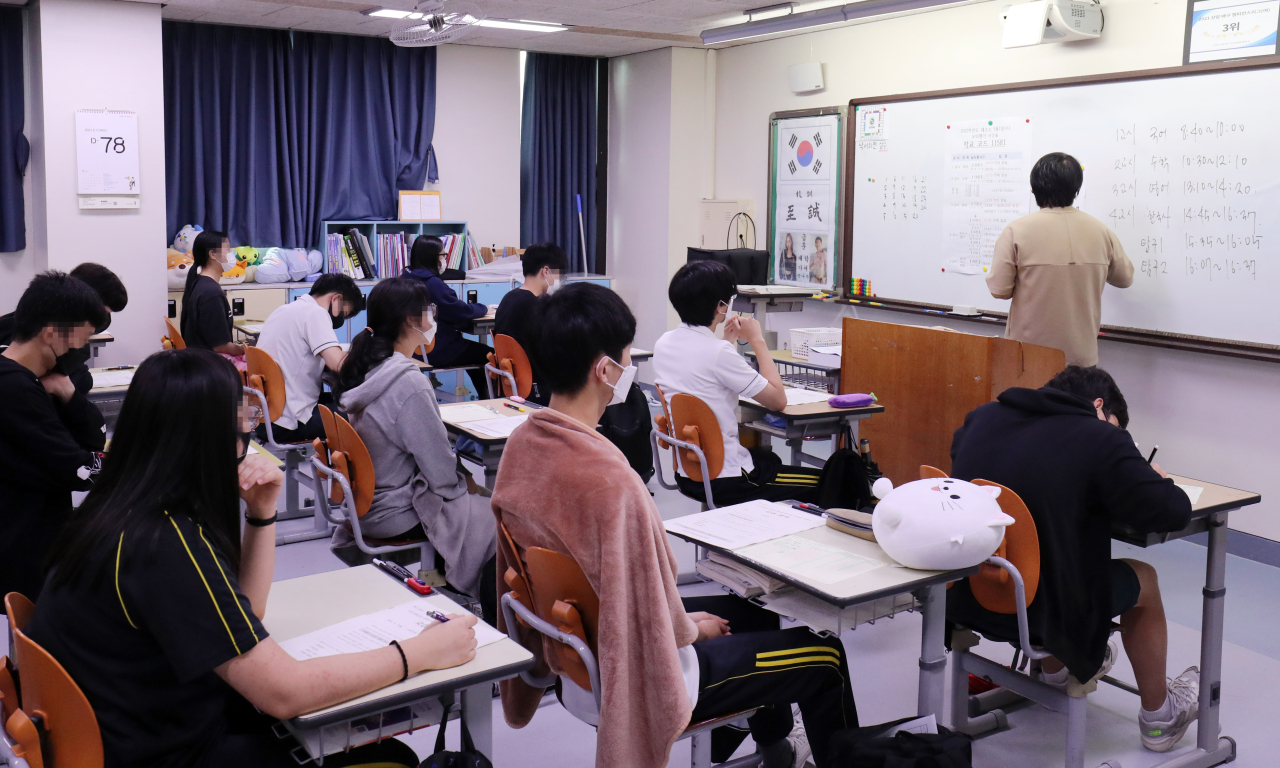‘High school economics textbooks biased, lack practical knowledge’
By Jo He-rimPublished : Sept. 1, 2021 - 16:18

Economics textbooks used in South Korean high schools lack practical knowledge about real-life issues, such as personal finance, and are biased against corporations, a study released by a big business lobby claimed Wednesday.
In its report, the Federation of Korean Industries claimed that young adults in Korea were falling behind in terms of economic knowledge compared to older generations, due to a lack of proper education. FKI commissioned Yang Joon-mo, an economics professor at Yonsei University, to conduct the study.
After reviewing textbooks from five publishers, the scope of classes as well as the number of students taking the subject, the professor concluded that overall, the education curriculum was insufficient to prepare students.
While the textbooks do outline definitions of different financial terms, the explanations are often abstract and they fail to address financial products in detail and give an idea about how to manage one’s finances, the report said.
Only 1.2 percent of the total 421,034 people who have applied to take this year’s national college entrance exam -- 5,076 test takers -- chose to take the economics section of the test.
Aside from students seeking to major in subjects related to economics at universities, there are only a few high school graduates who study economics, the study pointed out.
The FKI report also cited a separate study done by Bank of Korea to back their findings. The BOK’s study put the financial literacy level of those in the ages from 18 to 29 at a score of 64.7, lower than the 69.2 recorded for those aged 30 to 59. The figure is also lower than the average of all generations, 66.8.
“With the country’s economy growing, the importance of economic education is increasing,” Yang said.
“It is needed to reinforce economic education for teenagers, by making economics as a required subject in the CSAT, or designate mandatory credits for high school students.”
The report also highlighted a need to shed more positive light on the subject.
Most of the textbooks also try to strike a “mechanical balance” in introducing pros and cons of economic development in an equal weighting, the report said. It also added that some sections could mislead students to think that economic growth has a lot of negative aspects.
The FKI said the textbooks should also include more positive examples and descriptions of the different roles of entrepreneurs and businesses, and how they contribute to society.
“The United States would not be what it is now, if it were not for the spirit of endeavor among US university students to start new businesses,” Yoo Hwan-ik, the head of FKI’s corporate policy division said.
“Korea should also be able to inculcate a sense of entrepreneurship in young adults to lead the era of fourth industrial revolution, by presenting various cases of success and failure of entrepreneurs in high school textbooks.”
By Jo He-rim (herim@heraldcorp.com)





![[Herald Interview] 'Amid aging population, Korea to invite more young professionals from overseas'](http://res.heraldm.com/phpwas/restmb_idxmake.php?idx=644&simg=/content/image/2024/04/24/20240424050844_0.jpg&u=20240424200058)












![[KH Explains] Korean shipbuilding stocks rally: Real growth or bubble?](http://res.heraldm.com/phpwas/restmb_idxmake.php?idx=652&simg=/content/image/2024/04/25/20240425050656_0.jpg&u=)

